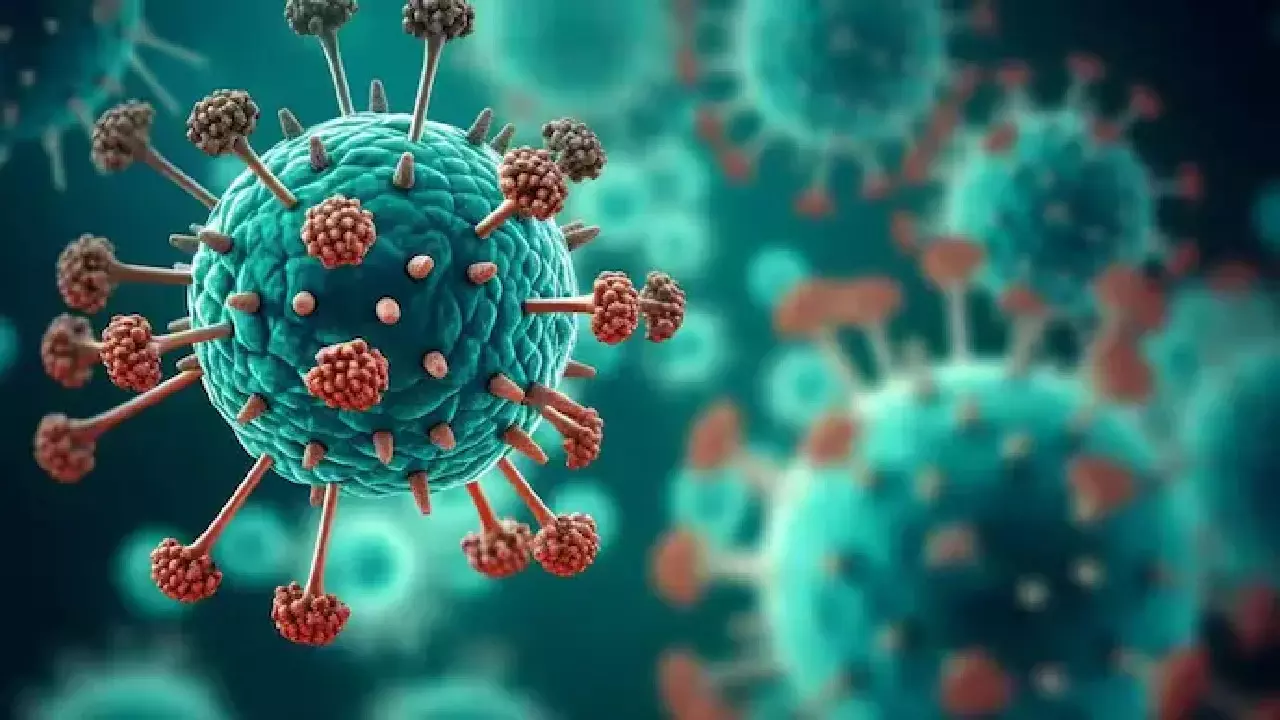HMPV Scare: Two HMPV Cases in Bengaluru and One in Gujarat, All with No International Travel History
Three infants—an eight-month-old and a three-month-old in Bengaluru, and a two-month-old in Ahmedabad—have been diagnosed with respiratory distress caused by HMPV.
HMPV

Three cases of respiratory distress caused by Human Metapneumovirus (HMPV) have been detected, two in Bengaluru and one in Ahmedabad, amid concerns about the virus’s spread as China reports a surge in infections.
In Bengaluru, an eight-month-old boy and a three-month-old girl tested positive for HMPV, both with no history of international travel. In Ahmedabad, a two-month-old child who is receiving treatment at a private hospital has also been diagnosed with the virus and is stable. The child’s family, from Rajasthan's Dungarpur, came to Ahmedabad for medical care.
These cases come amid growing reports from China about an increase in viral infections, including HMPV, a respiratory pathogen first identified in 2001. While urging citizens to stay calm, the Indian government has stressed that HMPV is not a new virus and has been circulating both globally and in India for some time.
HMPV Cases in Bengaluru
Both cases in Bengaluru had a history of bronchopneumonia, a type of pneumonia. The three-month-old child has already been discharged, while the eight-month-old tested positive for HMPV on Sunday and is currently recovering.
Bronchopneumonia involves inflammation of both the bronchi and alveoli in the lungs and can range from mild to severe. Symptoms include fever, cough, shortness of breath, rapid breathing, fatigue, and loss of appetite.
According to the Union Health Ministry, these cases were identified through routine surveillance for respiratory viral pathogens as part of the Indian Council of Medical Research's ongoing efforts to monitor respiratory illnesses.
Karnataka's Response
Karnataka Health Minister Dinesh Gundu Rao reassured the public, saying the eight-month-old is doing well and is expected to be discharged soon. He emphasized that HMPV is an existing virus, not the first of its kind and that certain individuals, particularly those with respiratory issues, are more susceptible to the virus.
Rao urged people not to panic, noting that while the strain's origin is uncertain, the children had no travel history and had come from Tirupati. The state government has met with medical officers and will continue coordinating with the ICMR and central authorities.
Chief Minister Siddaramaiah also addressed the issue, stating that the government would take all necessary precautions to prevent the spread of the virus.
Delhi's Preparedness
In response, Delhi health authorities issued an advisory to prepare for potential health challenges related to HMPV and other respiratory viruses. Hospitals have been instructed to follow strict isolation protocols for suspected cases and maintain detailed records of Severe Acute Respiratory Infection (SARI) and lab-confirmed influenza cases for accurate monitoring.
What is HMPV?
HMPV typically causes mild respiratory symptoms similar to the common cold, including cough, wheezing, runny nose, and sore throat. However, in young children, the elderly, and those with weakened immune systems, the virus can lead to severe respiratory complications requiring immediate medical attention.
HMPV is most commonly detected in children under the age of 11, with about 0.7% of all flu samples being positive for the virus.
Monitoring the Situation
The Union Health Ministry is closely monitoring the situation in China, where respiratory illnesses, including HMPV, are on the rise. The ministry stated that it is tracking trends through available surveillance channels, and the World Health Organization (WHO) is providing updates to inform ongoing measures.
There has been no unusual increase in Influenza-Like Illness (ILI) or SARI cases in India, according to the ICMR and the Integrated Disease Surveillance Programme (IDSP). The ministry reassured that India is well-prepared to manage any potential rise in respiratory illnesses and can deploy public health interventions promptly if necessary.

